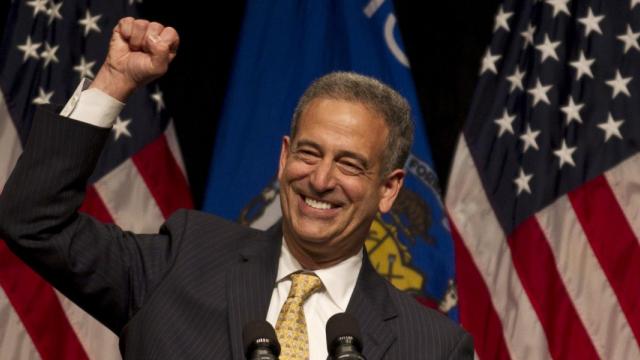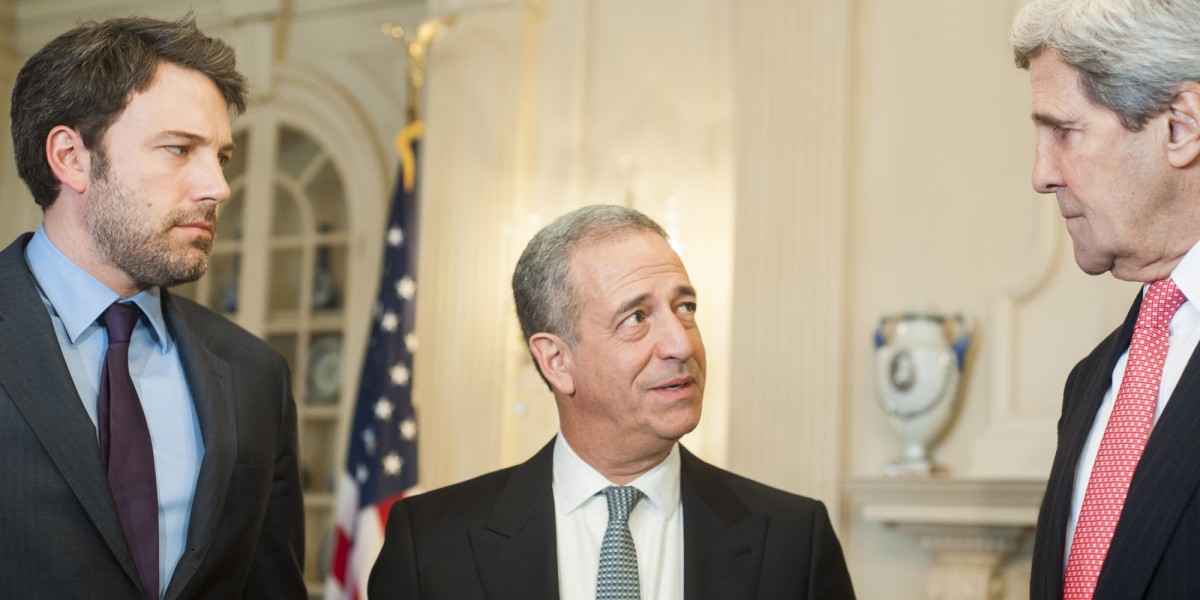
The future of the Democratic and Republican parties – and, one could argue, America itself – will be decided in the November elections. Whether Trumpism will prevail or Americans rally behind the Democrats' globalist candidate Hillary Clinton remains to be seen. Voters will decide, too, whether they want to put a number of Democratic progressives into office, including resurrecting the career of one of the party's former firebrand leaders: Russ Feingold.
Feingold is a longtime politician who opposed the the Patriot Act, the Iraq War and the death penalty. In the Senate, he voiced support for gay marriage long before the political tides favored LGBT causes, and years before Hillary Clinton or Barack Obama would go public. He railed against soft money in politics and spoke out against corporate campaign donations, making campaign finance reform one of his many efforts to reign in big money from politics.
Feingold is not a party-line Democrat, either. He’s been called the Senate’s “true maverick”, and his proclivity to vote with his gut led him to some unpopular decisions on the left – including a vote to confirm George W. Bush's choice for attorney general, John Ashcroft, and a vote against the dismissal of Bill Clinton’s impeachment proceedings.
While he's no Bernie Sanders, Feingold held a U.S. Senate seat in Wisconsin for 18 years during which time he gained a reputation for disregarding party lines in favor of a more personal moral compass. Feingold nonetheless fell to Tea Party challenger Ron Johnson in 2010 as Republicans celebrated a historic wave of victories.
Now, Russ Feingold is Rallying to Reclaim His Seat – and Return to the Issues that Put Him There in the First Place.
If Feingold’s political causes sound eerily familiar in 2016, that’s because they are. Democrats are aligning more and more with progressive causes, especially as Sanders and Elizabeth Warren increasingly push economic inequality to the forefront of political theater. The possibility of Feingold’s return suggests that there may be another progressive heavyweight ready to spearhead the battle against lobbyists and corruption.
Those hoping for Feingold’s ascendency to the top of the party may be left wanting, though. His 2016 campaign has thus far been anything but aspirational. Rather than moving leftward with Sanders (and by default, Clinton), Feingold has done exactly the opposite, advocating moderate and centrist positions on issues like college tuition and gun control.
While Sanders and Clinton this summer have set their sights on “debt free” college, Feingold’s official position supports loan refinancing, “just like we do with mortgages.” On gun control, too, the former senator supports “common-sense, responsible safety measures,” but opposes restricting weapons to citizens on various government watchlists, arguing that Congress “must make sure it’s not restricting the fundamental rights of American citizens without due process.”
All of Which Begs the Question: Is This the Same Feingold Who was Ousted in 2010?
According to David Canon, a political scientist at the University of Wisconsin-Madison, the former senator’s moderate approach isn’t incompatible with his maverick reputation. “While Feingold is clearly idealist in a lot of ways, and does adhere to strict ideological positions on some things, he also is a pragmatic legislator and does like to get things done,” Canon said.
He cited Feingold’s legendary inflexibility against lobbyist gifts and soft money as an example of his ideological purity, calling Feingold “squeaky clean when it comes to impropriety of any type.” Canon also recalled anecdotes from former staffers and interns who refused gifts all the way down to hors d’oeuvres, lest their actions be mistaken for impropriety.
On the other hand, Feingold’s modest goals for college tuition can be seen as “a concession to pragmatic politics,” according to Canon.
Other changes in Feingold’s campaign aren’t quite as easy to explain. The former senator has been under fire from his Republican rival after reports showed him closely allied with the Progressive United PAC. Feingold’s association with the PAC starkly contrasts with his previous campaigns, which famously included a spending cap of $3.8 million, or one dollar for every registered voter in the state.
Feingold, it Seems, is Now Benefitting from the Very Dark Money he Sought to Curtail in the McCain-Feingold Act.
Canon pointed out that since Citizen’s United, forgoing any involvement with PACs means accepting a significant fundraising disadvantage – a disadvantage that Feingold accepted in 2010, to substantial criticism.
“This time around, [Feingold’s] arguing that things have changed,” Canon said, adding that “if you want to be competitive, you have to play the game by the rules that are there.”
The signs on the ground, too, seem to indicate that perhaps Feingold isn’t so compromised as his critics would have us think. He has launched a tour of Wisconsin’s 72 counties, evoking his populist roots and little-guy ethos (his early campaigns featured campaign promises painted on his garage door in Middleton, Wis.). In recent months, too, Feingold raked in big endorsements from across the Democratic spectrum – including Obama and Sanders – indicating that his independent streak has done anything but alienate the senator.
What, then, should voters make of Feingold? Canon cautioned against any analysis that might find him to be any less a maverick today than he was a decade ago or more. “He’s basically the same Feingold, who’s adapting to a different world of campaign finance.”
3 WAYS TO SHOW YOUR SUPPORT
- Log in to post comments












